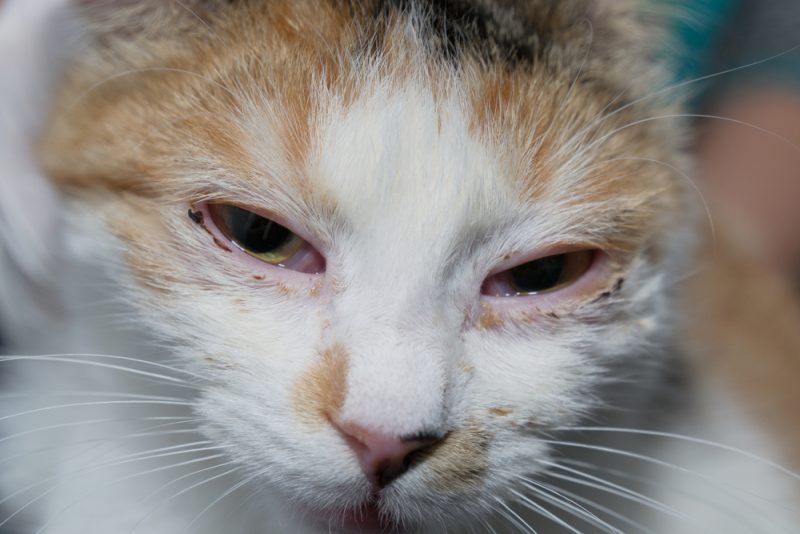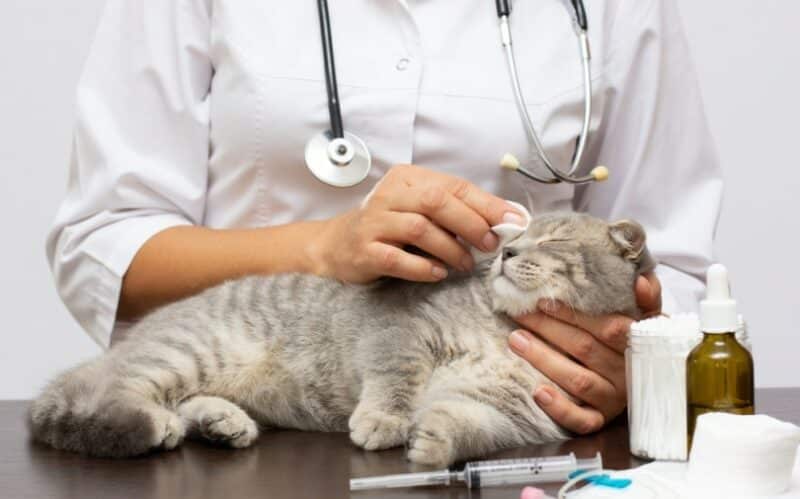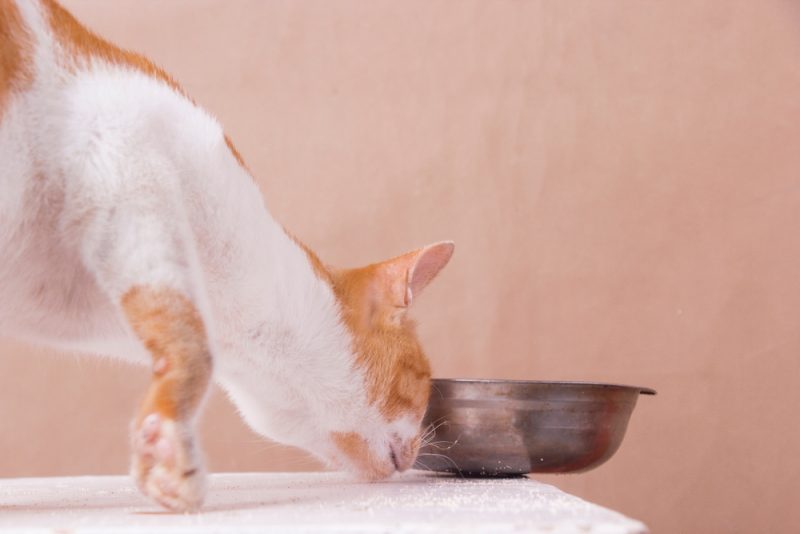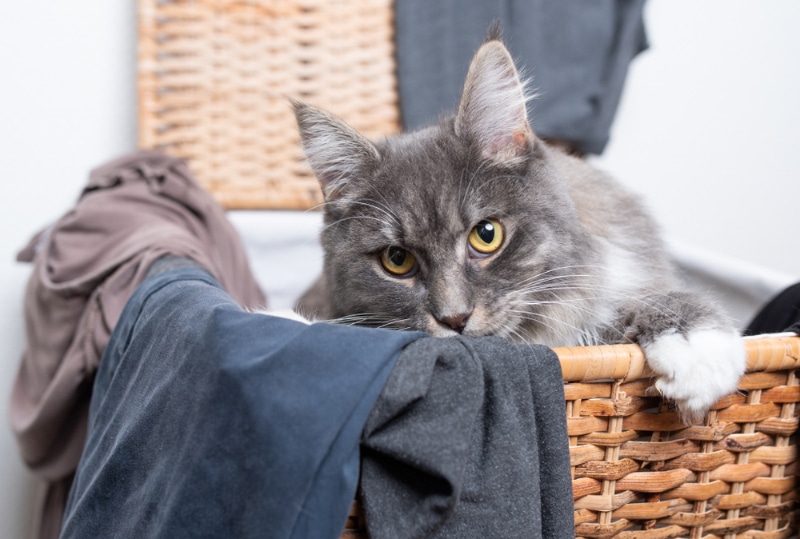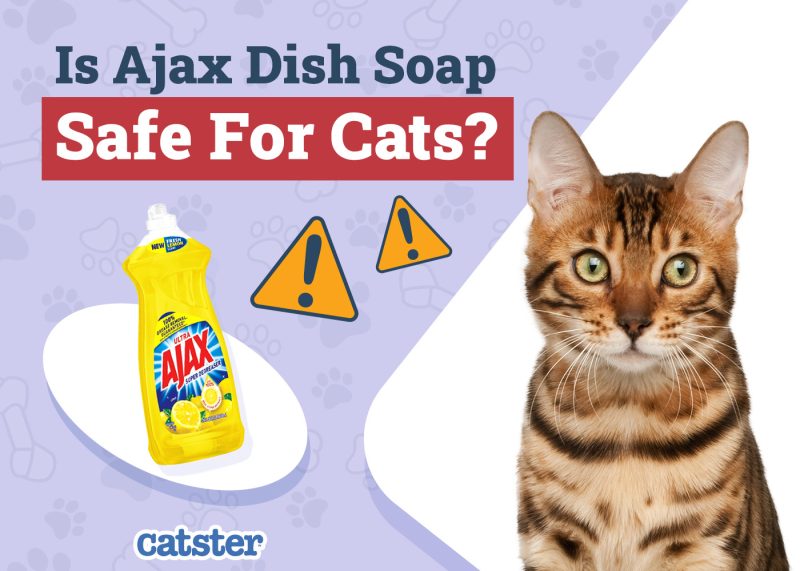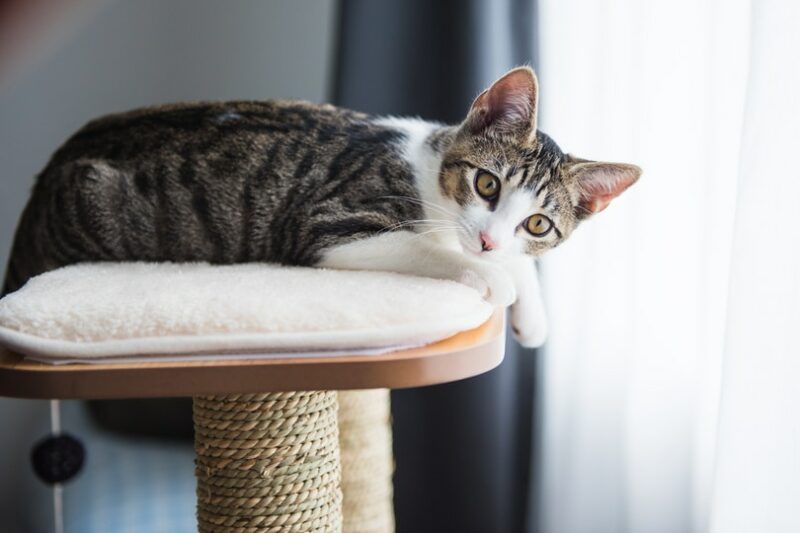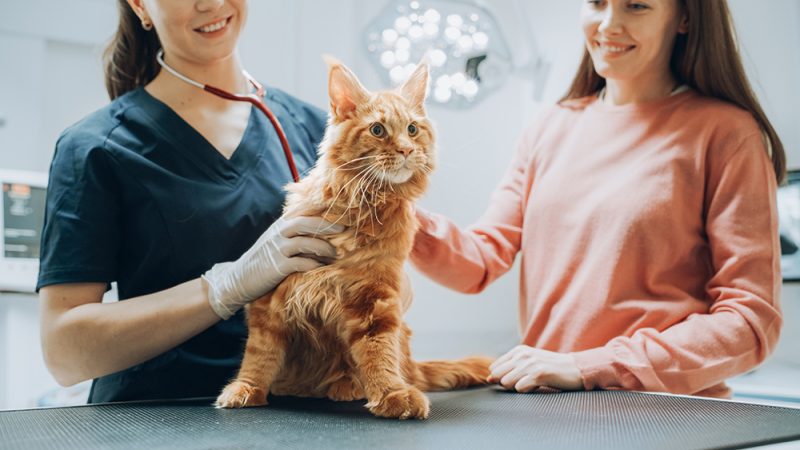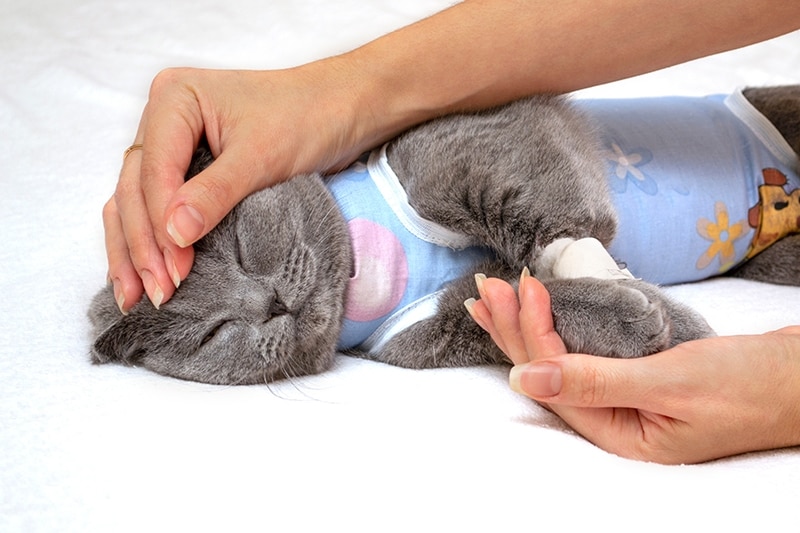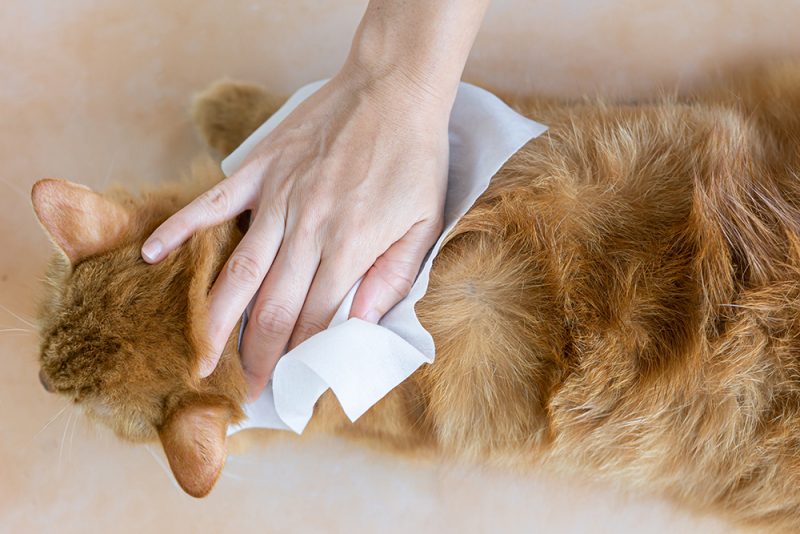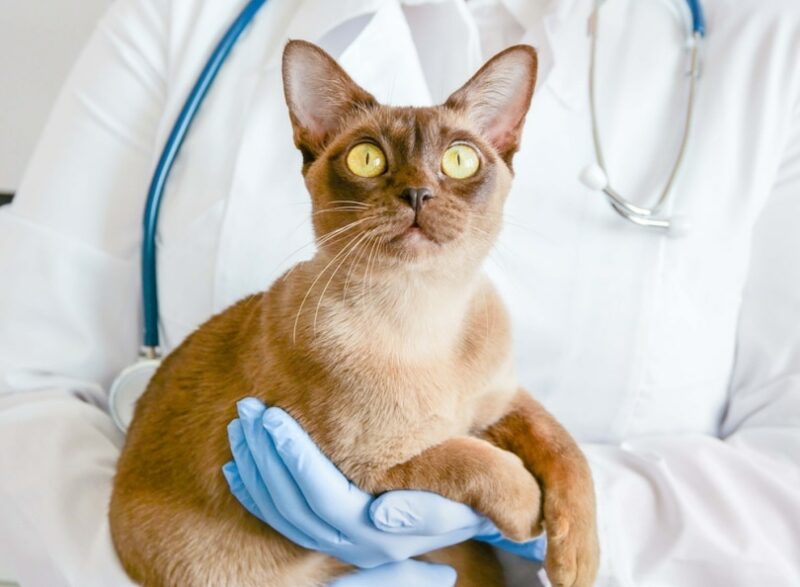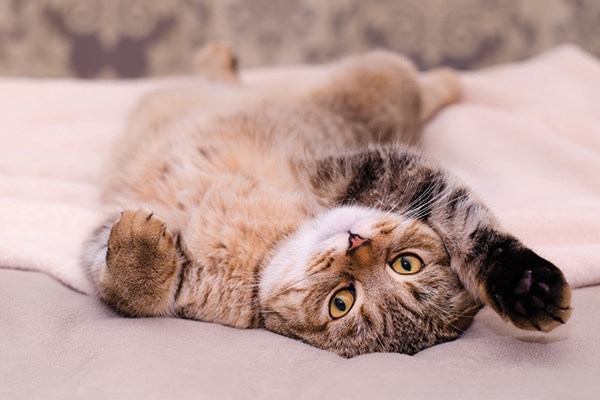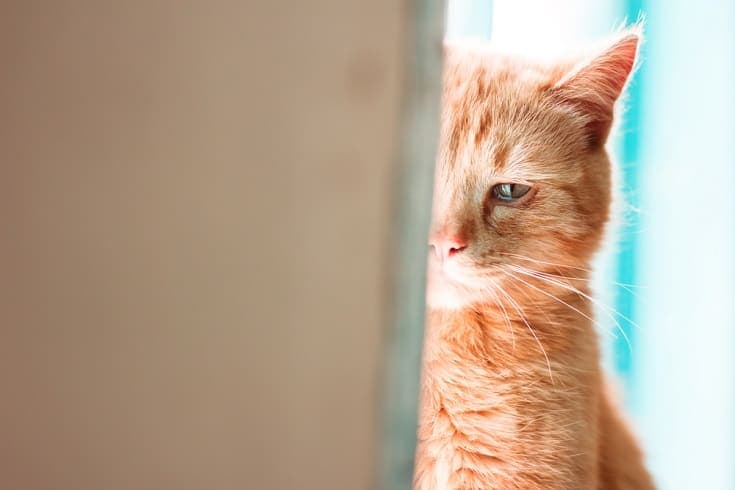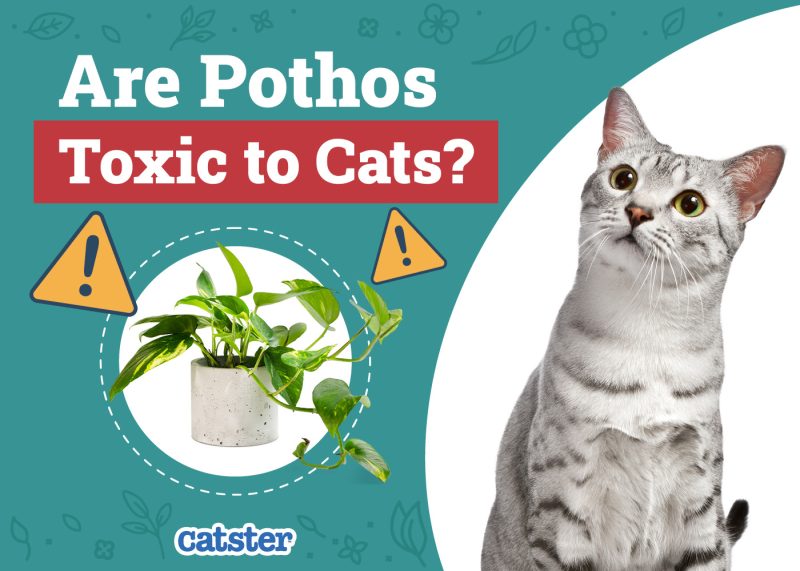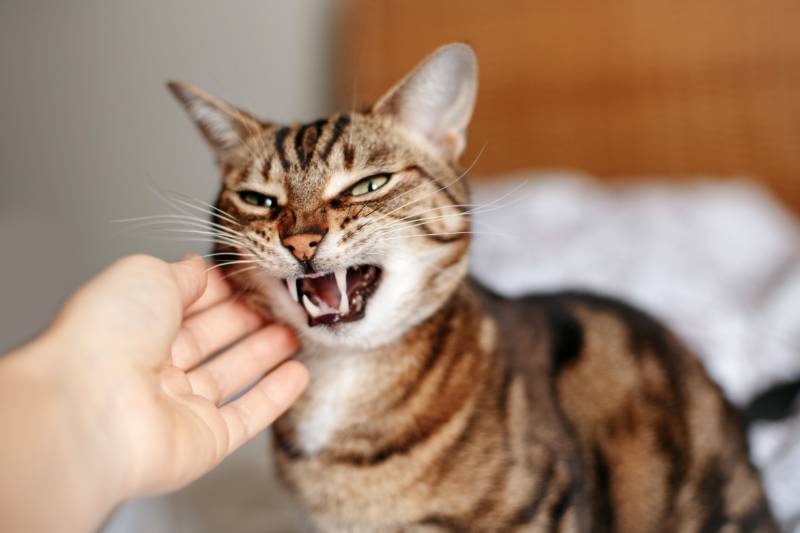In this article
View 4 More +Feline herpesvirus (FHV-1) is a highly contagious virus that affects the upper respiratory system and structures of the eye, causing signs such as sneezing, nasal discharge, and conjunctivitis (inflammation of the eyes). It’s estimated that upwards of 95% of cats have been exposed to the virus, and that the majority of cats who recover from an acute infection become chronic carriers. This means that the virus remains dormant in a cat’s body and may periodically flare up during times of stress or when the immune system is weakened (e.g., after treatment with corticosteroids, hospitalization, a stay in a cattery, moving etc).
There is, unfortunately, no cure for feline herpesvirus. Treatment is aimed at supporting the cat and treating any secondary bacterial infections. Most cats will recover well, however, those with unresponsive or recurrent disease may benefit from treatment with antiviral drugs. In this article we’ll take a look at the antiviral drug famciclovir for cats, which is a systemic treatment and one of a few antivirals for cats used for treating feline herpesvirus.

What Is Famciclovir?
Famciclovir (Famvir®) is a human antiviral medication used to control feline herpesvirus. It works by inhibiting the virus’s ability to make more DNA and replicate. Even though famciclovir is not a cure for feline herpesvirus – it does not kill viruses currently circulating in a cat’s body – it can help reduce the severity and duration of the infection.
Famciclovir is used off-label in cats. This means that although famciclovir is currently not licensed for cats, it can still be used to treat feline herpesvirus infection when prescribed by a veterinarian.
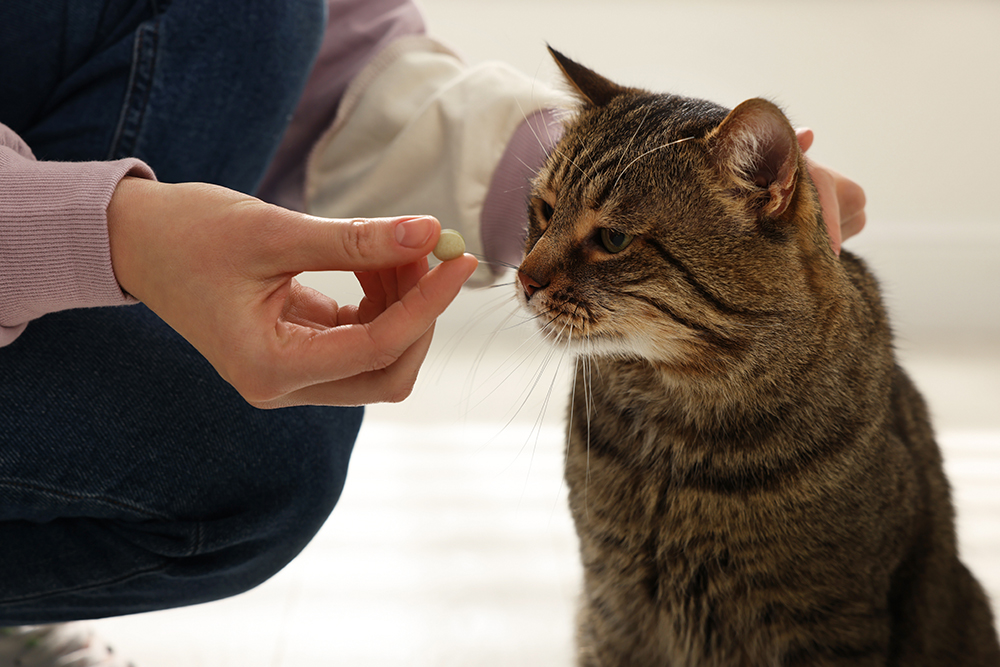
How Is Famciclovir Given?
Famciclovir is given orally in the form of tablets or a compounded liquid. It can be given on an empty stomach or with food. If your cat vomits after receiving famciclovir on an empty stomach, try giving the next dose with a small meal or treat.
The famciclovir dosage for your cat must be determined by the veterinary surgeon and will usually be given two times daily. The duration of treatment varies but it’s usually given for a couple of weeks. The veterinarian will determine the appropriate dose based on your cat’s weight and length of treatment. Be sure to check the prescription label to be sure that you’re giving the medication correctly.
If you need to speak with a vet but can't get to one, head over to PangoVet. It's an online service where you can talk to a vet online and get the advice you need for your pet — all at an affordable price!

What Happens if You Miss a Dose?
If you miss a dose, give it when you remember, but if it is close enough to the time for the next dose, skip the dose you missed and give it at the next scheduled time. After that, return to the regular dosing schedule. Do not double-up or give extra doses.
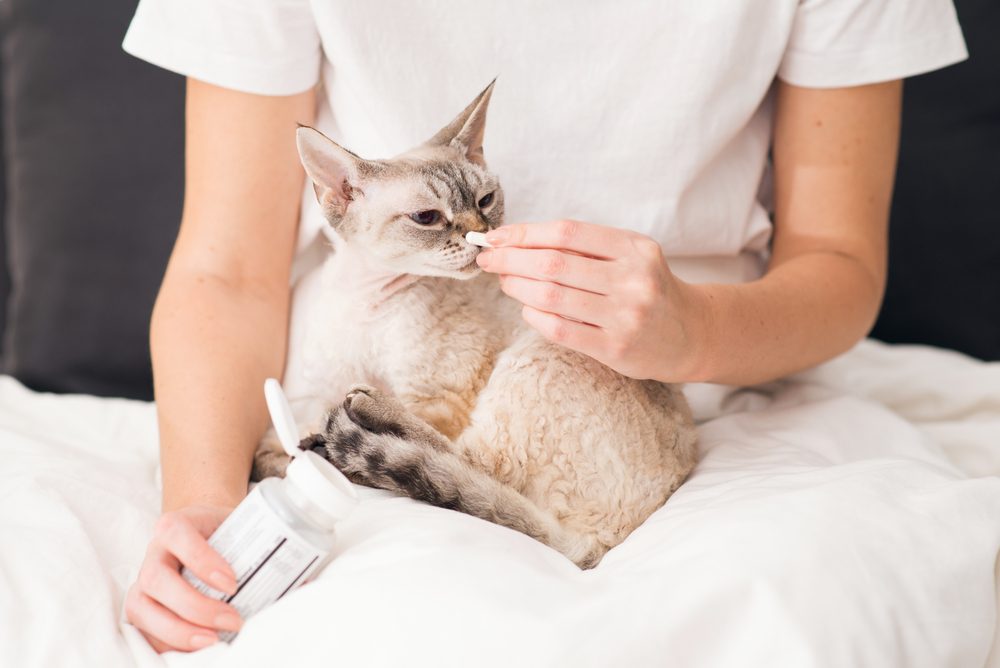
Potential Side Effects of Famciclovir
Famciclovir is generally well-tolerated. The most common side effects include:
- Decreased appetite
- Vomiting
- Diarrhea
- Increased thirst
- Increased urination
Famciclovir should be used with caution in cats that have kidney problems. If you believe that your cat is experiencing side effects from the medication, consult a veterinarian.

Frequently Asked Questions (FAQ)
How long does it take to know if the medication is working?
It can take several weeks of consistent use to see the full effects of famciclovir. You should see your cat’s clinical signs improve gradually over time as the medication becomes fully effective.
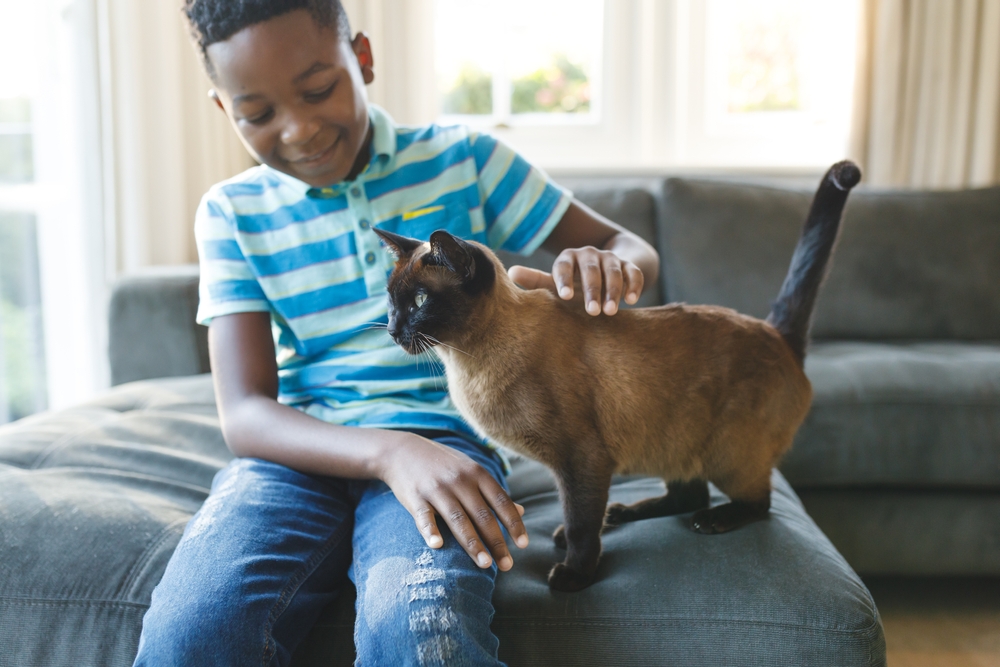
How should I store this medication?
Famciclovir should be stored in the original prescription bottle or a closed dosage reminder container at room temperature, away from heat, moisture, and direct light. Compounded medication should be stored according to the instructions on the label.
Keep this medication out of reach of children and other animals.
Does this medication require special monitoring?
If your cat needs to be on this medication chronically (long-term), the veterinarian may recommend performing regular blood and urine tests to make sure that your cat’s body is tolerating the medication well.
Conclusion
While there is no cure for feline herpesvirus (FHV-1), the antiviral medication famciclovir can reduce the severity and duration of an infection. It works by inhibiting the replication of the virus. Famciclovir is typically administered orally in tablet or liquid form and is generally well-tolerated by cats, but it’s essential to follow the prescribed dosage and treatment regimen provided by a veterinarian.
Featured Image Credit: Todorean-Gabriel, Shutterstock

